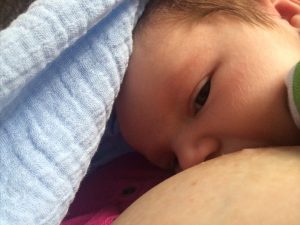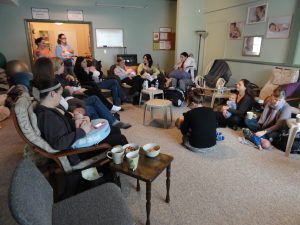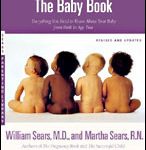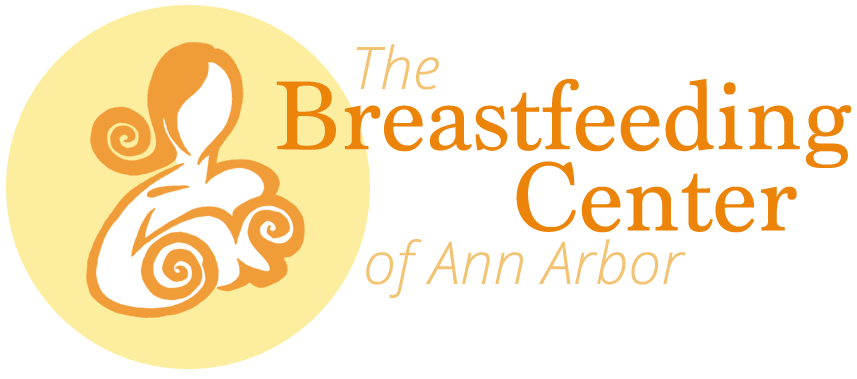I just read the blog, 6 Conditions That Can Make It Hard to Breastfeed According to Science. Of course, the word science caught my eye! I love science about breastfeeding! So, what did it say?
Here are the conditions they had listed that make breastfeeding hard:
1. Flat or inverted nipples
2. Nipple piercings
3. Postpartum depression
4. Having a c-section
5. Raynard’s Phenomenon of the nipple
6. Breast surgeries
I would agree that most of these can complicate breastfeeding, but in my opinion, none of these make it impossible to breastfeed.
1. Sure, flat and inverted nipples can make it tricky to latch at first. But you are “breastfeeding”, not nipple feeding. Getting a good deep latch usually does the trick. If not, using a nipple shield with good follow up care can be a great transitional tool.
2. Nipple piercings. I have never had a mother have trouble with breastfeeding due to piercings. Ever. Did they make this up?
3. PPD. I agree that it is hard to do anything if you are depressed, but we will get to this later.
4. C-Section. You really just need a whole lot of extra support and a good plan.
5. Raynard’s- So many solutions for this!
6. This is the trickiest but it really depends on the surgery.
Reading this list and blog made me really upset. This led to my own list. So what are my “top 6 reasons blogs make breastfeeding harder”? Here you go
Barbara Robertson’s Top 6 reasons blogs make breastfeeding harder
1. Inaccuracy. Under the link “if you have any of these six conditions, it might be hard to breastfeed“, it only mentions two conditions, having HIV (which they don’t even discuss) and Raynard’s Phenomenon (which we now call vasospasms because blanching of the nipple is not always Raynard’s and there are solutions for this). So, unless you click on this link to see what they are saying, you assume that this article supports the title statement. It does not. As a matter of fact, there is little scientific support for the above.
2. No hope. They only offer problems with no solutions. If a mother is struggle with one of the above, this is a confirmation to her that there is no answer, she should just stop breastfeeding. There is no message at the bottom of the blog offering where to go for help. This implies there is no help. This leads to number three.
 3. Not providing resources for where to get more help. Also, not all lactation support it the same. Working with a compassionate, knowledgeable IBCLC can be key. I frequently consult with second or third time parents who were told there was no solution to the issues they had with their first baby and yet we are able to pin point ways to improve the future. Or I am the second, third, fourth, or even fifth lactation support person the mother has utilized. This is because they, the lactation helper, didn’t have the answers to the problem. The support person didn’t admit that they just didn’t know. They had reached the scope of their experience. Babies don’t just not breastfeed. Breastfeeding also shouldn’t hurt. Parents are suppose to make milk. These are the normal biological things that should happen. If they aren’t, what is getting in the way? As an IBCLC, it is my job to find out and I usually do. If not we reach out to other members of the health care community.
3. Not providing resources for where to get more help. Also, not all lactation support it the same. Working with a compassionate, knowledgeable IBCLC can be key. I frequently consult with second or third time parents who were told there was no solution to the issues they had with their first baby and yet we are able to pin point ways to improve the future. Or I am the second, third, fourth, or even fifth lactation support person the mother has utilized. This is because they, the lactation helper, didn’t have the answers to the problem. The support person didn’t admit that they just didn’t know. They had reached the scope of their experience. Babies don’t just not breastfeed. Breastfeeding also shouldn’t hurt. Parents are suppose to make milk. These are the normal biological things that should happen. If they aren’t, what is getting in the way? As an IBCLC, it is my job to find out and I usually do. If not we reach out to other members of the health care community.
4. Blatant breastfeeding miss-information. I don’t know why nipple piercings are here at all. The article that is referenced from La Leche League actually says there aren’t any real issues with this (except to take out the jewelry while nursing. Duh.). I have a professional friend who works with military families, Robyn Roche-Paull. Robyn offers trainings on breastfeeding with piercings and tattoos which I have taken. She says piercings are rarely a problem and in my 20 years working with families, many of which have/had nipple piercings, and there has never been an issue. Please, let’s not make problems where there aren’t any.

5. Not telling the whole truth. Under postpartum depression, the blog says, “According to Depression Research and Treatment, “…while postpartum depression may reduce rates of breastfeeding, not engaging in breastfeeding may increase the risk of postpartum depression. Additionally, there is some evidence that breastfeeding may protect against postpartum depression or assist in a swifter recovery from symptoms.” Meaning that depression may make it harder to breastfeed, but breastfeeding might help the depression. It’s a tightrope.” The research clearly shows that breastfeeding helps with reduction of postpartum depression. This mother needs help to handling her depression and support for her and the baby. Abandoning breastfeeding can make her feel worse. How about the idea of focusing on supporting her so she feels she can keep breastfeeding. Make it so she is getting the therapy she needs, medications if needed, and no other work but caring for herself and nursing the baby. If she feels she needs to or wants to stop breastfeeding, that is certainly fine. But I have found that well meaning family, friends, and health care providers feel the solution is to stop breastfeeding, not support the mother.
Also, under Raynard’s Phenomenon, they don’t mention that if this is diagnosed correctly, there are straight forward things to do that can reduce this pain dramatically. They also don’t mention it just seems to go away by itself as the baby gets older.
As to breast surgeries, there is a huge difference between a biopsy and a full, double mastectomy but this is not emphasised. The great majority of parents can still nurse. She may need extra help and guidance. That is why helping families find good breastfeeding support is so important.
 6. Bloggers that are lazy. This person did not do their homework. They wrote a sensationalist title to catch people’s eye and then (purposefully?) didn’t bother doing the investigative work that should have been done or offer resources for people that are struggling. They clearly did not read their own links or didn’t care what they said. They used reputable sources, La Leche League, Dr. Sears, and the AAP, but then they don’t report that their own links dispute what they say, or aren’t actually addressing the issue that the author proposes.
6. Bloggers that are lazy. This person did not do their homework. They wrote a sensationalist title to catch people’s eye and then (purposefully?) didn’t bother doing the investigative work that should have been done or offer resources for people that are struggling. They clearly did not read their own links or didn’t care what they said. They used reputable sources, La Leche League, Dr. Sears, and the AAP, but then they don’t report that their own links dispute what they say, or aren’t actually addressing the issue that the author proposes.
We are talking about a huge health benefit to parents and babies! How dare someone treat this so lightly? The “science” that was promised is not here. This blog is based upon half truths, miss-information, and lack of understanding. And clearly not really caring about breastfeeding. How is this going to help anyone?
To me, this is irresponsible journalism. While it is true, many of these issue can make breastfeeding difficult, that is not the whole story. I am surprised that Romper published this and appalled at the author for being so negligent. If you are going to write about breastfeeding please do it with care and accuracy.
